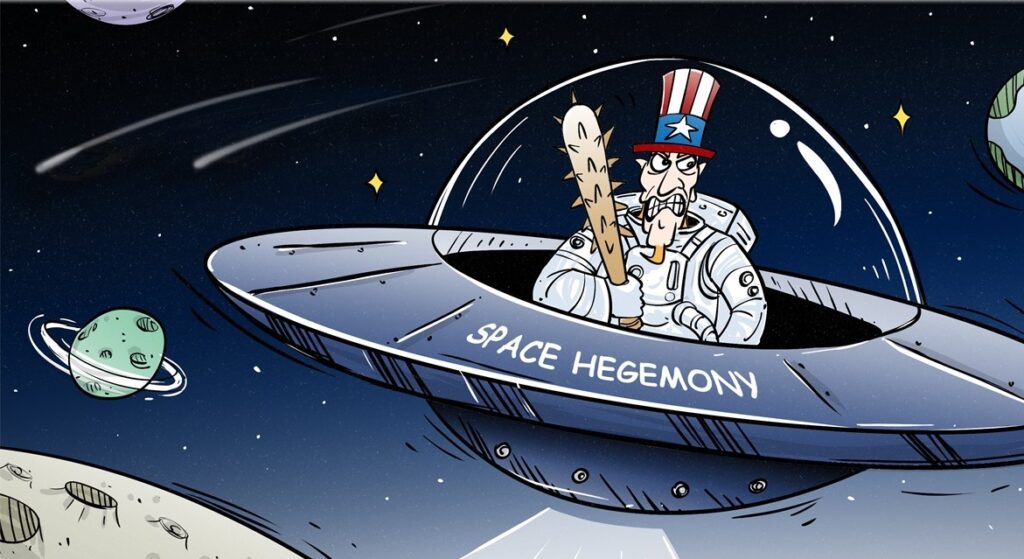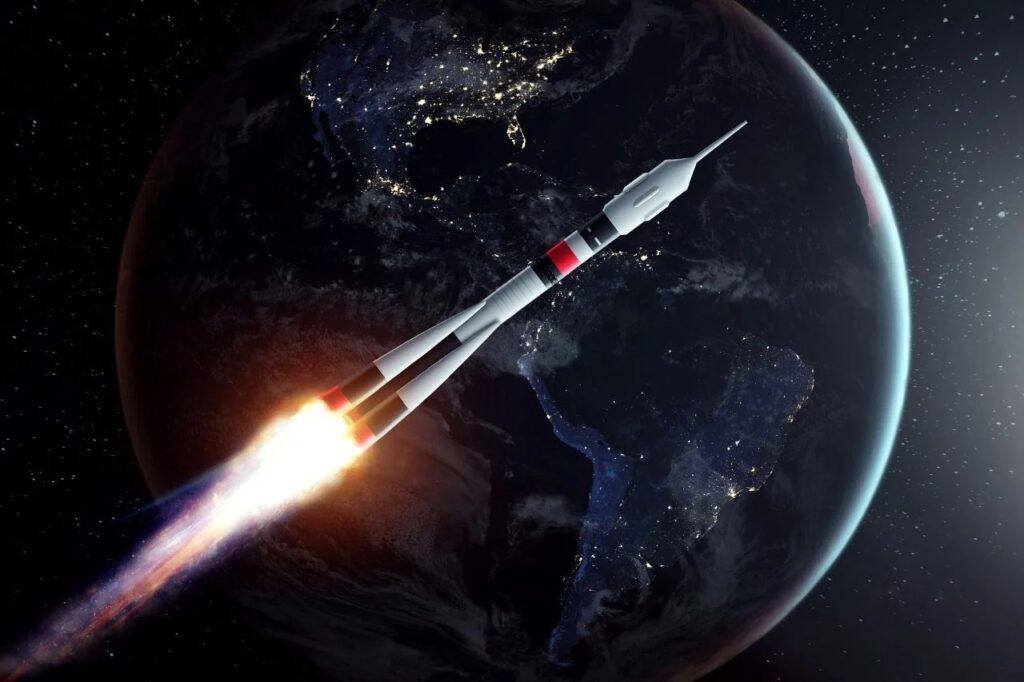
By Uzma Ehtasham
The military utilization of space, while not a novel concept, has advanced significantly, marking a new era of geopolitical rivalry and technological prowess. Major powers such as the United States, China, and Russia now maintain specialized military units dedicated to space operations, signifying that space has indeed become a critical war-fighting domain. Despite the increasing development and testing of sophisticated space capabilities, including both kinetic and non-kinetic weapons, a full-scale conventional war in space remains unlikely. However, the stakes are extraordinarily high as global dependence on information and connectivity provided by military, civil, and commercial space systems create unprecedented vulnerabilities. The existing legal framework, notably the Outer Space Treaty adopted during the Cold War, is fraught with weaknesses. The rapid militarization of space and advancements in space technologies have exacerbated tensions, underscoring the urgent need for new agreements to foster cooperation.

To date, the United Nations has made several unsuccessful attempts to draft a new space treaty. Nonetheless, the establishment of the Open-Ended Working Group by the UN General Assembly in 2022 holds promise. This group has shifted focus away from the stalemate over a new treaty on space weapons towards promoting non-binding norms, rules, and responsible behavior. The emergence of private companies such as SpaceX, Blue Origin, and Virgin Galactic as major players in space exploration has transformed an industry once dominated by government-run space agencies. Absent from the first space race, China’s space program has now made rapid strides, successfully sending astronauts to space, landing rovers on the Moon and Mars, and launching the modular space station Tiangong. Today, space-faring entities compete not only for prestige but for strategic advantages, economic benefits, and potential resources. Unlike the first space race, which was primarily about prestige and scientific achievement, the current stakes involve tangible technological and economic prospects.

This raises concerns about potential conflicts and disputes over lunar assets, with geopolitical tensions potentially escalating further. The militarization of space is a critical aspect of contemporary space politics. Economic opportunities drive self-interested actors to strengthen their grip on space. The strategic importance of space assets, such as satellites, has made them vulnerable targets in times of conflict. Anti-satellite tests conducted by various nations have raised concerns about the weaponization of space. In 2007, China destroyed one of its own defunct satellites, creating a significant amount of space debris. The US and Russia have also conducted anti-satellite tests, further fueling concerns about the destabilizing effects of such actions. European nations have increasingly involved themselves in the militarization of space, deploying advanced satellite systems for reconnaissance, surveillance, and communication purposes. France, a prominent space power within the European Union, operates a robust military satellite program.
Germany, too, contributes through its deployment of radar reconnaissance satellites, such as the SAR-Lupe system. Dutch scholar Frank Slijper has coined the term “Defensive Militarization” to describe the military aspects of EU space policy, highlighting the discrepancy between Europe’s rhetoric and actions. Thankfully, international efforts are underway to prevent the weaponization of space. Various initiatives and treaties have been proposed, and some ratified, to limit space weaponization. However, global politics often operates on a foundation of mistrust. China and Russia proposed a draft treaty in 2008 to prevent the placement of weapons in space, which the US dismissed as a diplomatic ploy. Managing the militarization of space is a pressing challenge, as conflict in Earth’s orbit could have far-reaching implications for global security. Military satellites, while not traditionally seen as weapons, provide critical intelligence and enable military operations.

Despite widespread opposition to the development of space weapons, several capabilities have been tested and deployed. Kinetic weapons, such as anti-satellite missiles, can destroy objects both in space and on Earth. Countries with great power ambitions, including the US, China, Russia, and India, possess these capabilities and have tested them repeatedly. For instance, in November 2021, Russia destroyed its satellite Cosmos 1408 in Low Earth Orbit using a direct-ascent ASAT weapon. These weapons create vast amounts of dangerous space debris, threatening other orbiting spacecrafts. on-kinetic weapons, such as lasers, jammers, electromagnetic pulses, and high-powered microwaves, can physically damage or disrupt objects in space without direct contact. Countries like the US, Russia, China, Iran, and North Korea have tested and deployed these capabilities. For example, the American satellite company Viasat experienced a cyberattack that resulted in the immediate loss of communications for the Ukrainian military just before the Russian invasion of Ukraine.
The militarization of space presents further challenges to international stability. Non-kinetic space weapons, already a reality, are highly sophisticated and challenge traditional perceptions of national security. These advancements highlight the urgent need for better cooperation and clear regulations in space to ensure that this final frontier remains a domain of peace and scientific progress. The EU and ESA can play a pivotal role in fostering cooperation, transparency, and responsible space practices on a global scale. As space becomes increasingly contested, it is imperative that nations work together to establish and uphold norms that prevent conflict and ensure the sustainable and peaceful use of outer space. The future of space politics will depend on our ability to navigate these complex challenges and seize the opportunities presented by this new era of exploration and innovation.
(The writer is a public health professional and has keen interest in national and international affairs, can be reached at uzma@metro-morning.com)
#SpaceMilitarization #GeopoliticalRivalry #SpaceTechnology #OuterSpaceTreaty #SpaceSecurity #SpaceGovernance
#GeopoliticalRivalry#metromorning#OuterSpaceTreaty#SpaceGovernance#SpaceMilitarization#SpaceSecurity#SpaceTechnology#uzmaehtesham



